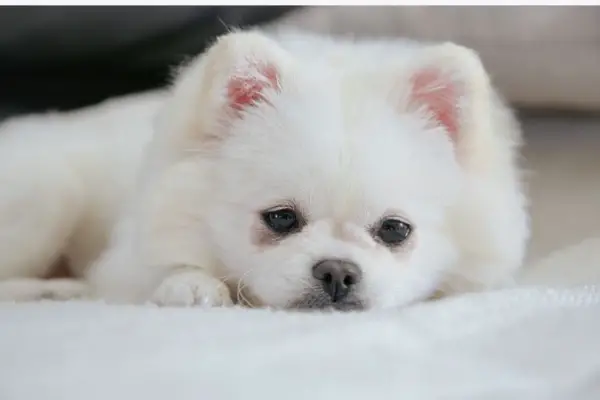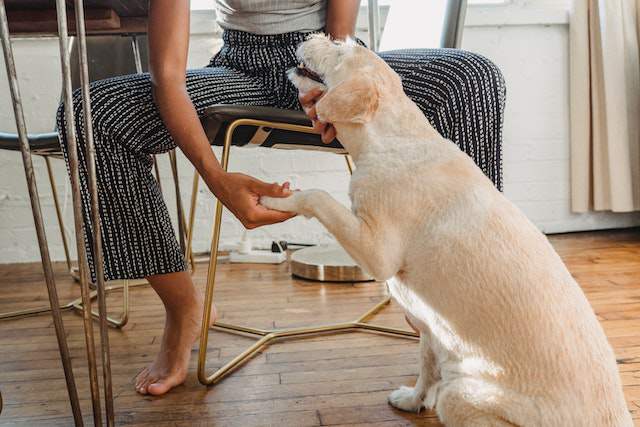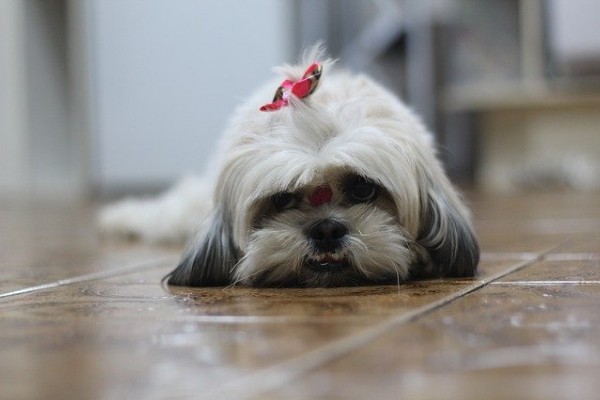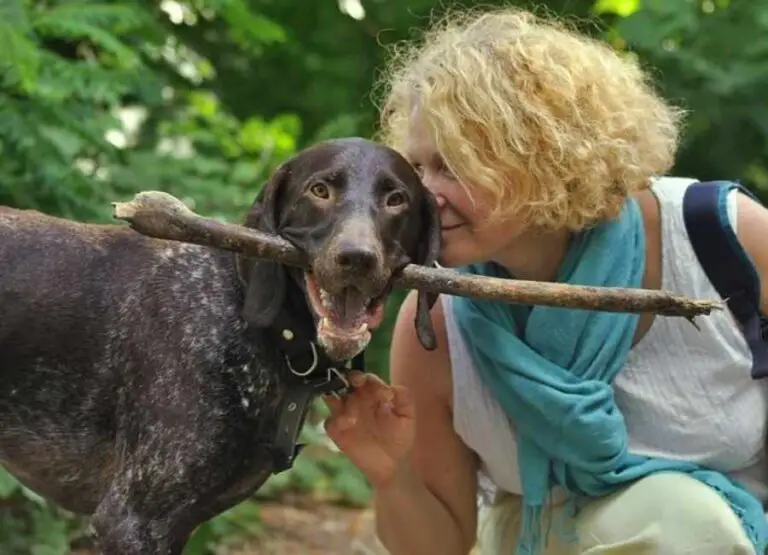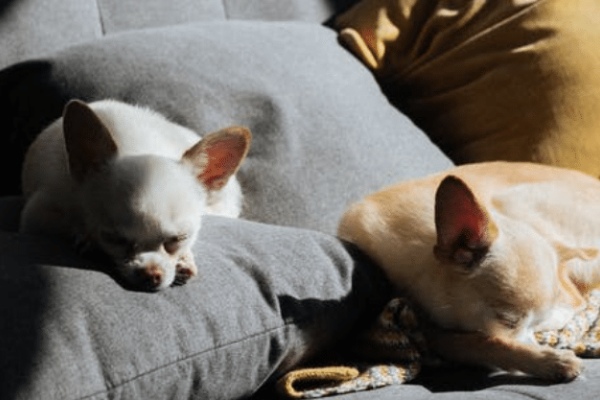Can Chihuahuas Be Left Alone: 9 Helpful Tips & Dangers
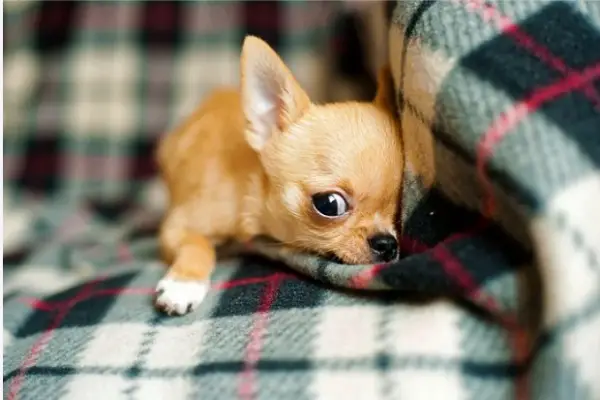
Chihuahuas are one of the companion dogs around, but can Chihuahuas be left alone at home, and for how long, let’s take a look together!
We will be discussing the dangers associated with leaving your Chihuahua alone at home for an extended period of time.
We will also outline and discuss some common ways you can help your Chihuahua to stay alone at home and be happy, which is sometimes easier said than done.
Before we jump into all we have to discuss today in this post, it will be wise if I use a paragraph to summarize your question can Chihuahuas be left alone!
So…
Can Chihuahuas Be Left Alone
Yes, Chihuahuas can be left alone for up to 6 hours at a time, but because they were specifically developed to be human companions, they are prone to separation anxiety and need on human connection, so keeping them alone for an extended period of time is never a smart idea.
Separation anxiety is typical in Chihuahuas, and it can show up immediately when the owner departs, leading to other undesired behaviors.
As a result of leaving your Chihuahua alone for a lengthy amount of time, Chihuahuas may develop aggression
How to help a Chihuahua stay alone
Here are some typical ways to teach your Chihuahua to stay at home when you’re gone:
1. Give clear window view of outside world
Provide your chihuahua with a clean window view of the outside world to keep them occupied while you are away.
To view what’s going on outside, teach your Chihuahua to sit or lie down near a clear window.
Prepare the window so that your Chihuahua may climb up to see the birds or a busy roadway.
Make sure your Chihuahua is appropriately socialized with a range of stuff he can see via a clear window to prevent unnecessary barking.
2. Turn on your TV or radio on before leaving home
Leaving the television on gives both human background noise and something to look at for most Chihuahuas.
Make sure your Chihuahua has lots of interesting and exciting toys while you’re away.
If your Chihuahua is still a puppy, give him or her a Kong filled with peanut butter.
Because leaving a Kong can assist with separation anxiety, your Chihuahua will be more anxious about getting the peanut butter than with you leaving.
While interactive electronic toys may occupy your chihuahua while you’re gone, you must teach him not to destroy them.
3. Get interactive and engaging toys
When you obtain a new Chihuahua puppy, try to get as many play toys as possible so that the puppy can have a favorite toy.
Remove the remaining toys once the Chihuahua puppy has chosen their choice.
When you’re busy, try to put the Chihuahua in his cage or living space, introduce the toys and go about your business.
Take the Chihuahua outdoors and play with it after you’re finished.
When you’re not around, this teaches your Chihuahua to busy himself with his toys.
4. Start proper crate training
Crate training is required if you know you won’t be able to care for your Chihuahua all of the time, or you shouldn’t get a Chihuahua in the first place.
Crate training helps your Chihuahua learn boundaries and teaches him when he should be left alone.
If your Chihuahua hasn’t been crate trained, he’ll have a hard time adjusting to being alone.
Teach your Chihuahua to regard the crate as a safe haven and a relaxing place to stay.
Also, make sure your Chihuahua has a place to relieve himself.
5. Provide a stress-free area
A stress-free zone is a room you built for your Chihuahua to use as a safe refuge or to play in.
Make a playpen for your Chihuahua after you adopt it to store all of the Chihuahua’s toys and other items in.
When you have more free time, take your Chihuahua into the stress-free zone and play with it for a few minutes.
Then, before leaving the stress-free zone, stand up and point to a play object or direct your Chihuahua to a specific play item; if your Chihuahua tries to accompany you, stop and restart.
Repeat until your Chihuahua reacts or rests in the room or enclosure, then continue until your dog learns where to go.
6. Exhaust pup energy before you leave
Before leaving the house, take your Chihuahua for a five-minute walk or play fetch with him to burn off some of his pent-up energy.
This walk will allow your Chihuahua to relieve himself while also allowing you and your dog to spend some quality time together before you leave.
It’s important to play with your dog before you leave most of the time so that you can expend its energy.
Chihuahuas fall asleep when they’re weary of playing, which might help you pass the time while you’re away.
7. Provide a safe and calming spot
Every dog feels secure in its own environment, which is why the most unsocialized dogs will not allow other humans or pets into their room or bed.
To help your dog cope with separation anxiety, establish a reference point where he or she connects the location as quiet and pleasant.
Make sure the dog has everything he needs at the reference site, such as a chew toy or soothing music, so he can rapidly recognize it as a secure place.
You can occasionally join your dog in the area, but you should never call the dog out of his safe spot; instead, let the dog come out on its own terms.
8. Get a second Chihuahua
Dogs are pack animals who flourish when they are surrounded by other members of their family.
Because they were meticulously developed to be a human companion and thrive largely on human companionship, most dogs are prone to separation anxiety.
If you are not always available, having a companion pet as soon as possible is one of the best, if not the best, techniques to reduce separation anxiety in dogs.
Your dog will be less likely to suffer from separation anxiety if you have a companion animal.
So, to avoid separation anxiety, get your dog a companion pet. If you buy another pet or dog, your dog will always have someone to play with.
9. Invest in automatic treats dispenser
This is a great technique to keep your dog engaged while you’re gone; dogs love treats and food, which you can use to keep them occupied.
Remember that giving your dog too many goodies might put his or her health in jeopardy.
As a result, moderation is essential; you may design the dispenser to drop incentives for your dog over a period of time that suits you.
Start the reward dispenser training when you’re at home so that when you leave your dog and sit, the treats will fall.
One treat at a time will keep him interested for a while. You and your dog can experiment with different times to see what works best for you.
Dangers of leaving Chihuahua alone for too long
Leaving a Chihuahua alone at home for a lengthy amount of time can result in a number of issues, including:
1. Risk of separation anxiety
Chihuahuas are prone to separation anxiety since they were designed to be human companions rather than stand-alone protection dogs.
Separation anxiety can be exacerbated if your Chihuahua is left alone for long periods of time with no stimulation.
Separation anxiety can manifest itself in a variety of ways, including biting, nipping, chewing, barking, aggression, and urinating in strange areas.
Chihuahuas are not the breed for you if your house is usually quiet, and you work a 9 to 5 job. There are many ways to stop separation anxiety in dogs.
2. Risk of destructive chewing
Despite their small size, Chihuahuas chew stuff more than other large dogs when left alone, which indicates stress.
Puppy Chihuahuas chew at all ages, but their owners have control over what and why they chew.
Chewing for Chihuahuas may help reduce stress, boredom, and moderate anxiety, but it comes at the price of your stuff, which is frequently the result of being left alone.
Keep an eye on your Chihuahua’s stress level and provide chew toys if they start chewing on things that aren’t meant to be chewed.
3. Risk of barking behavior problems
Boredom barking is one of the unpleasant consequences of leaving your Chihuahua at home for a lengthy amount of time.
Barking and biting are two kinds of aggressiveness in Chihuahuas, both of which are motivated by frustration.
Some Chihuahuas may require some time to adjust to being alone. This is especially true if they are alone for an extended amount of time for the first time.
It might be aggravating for them to be unsure of how to handle this new situation.
If they don’t have anything better to do with their time, they may start barking incessantly, leading their neighbors to become irritated.
4. Unnecessary house accident
One thing that may contribute to your Chihuahua’s frequent house disasters is leaving him alone at home for a lengthy period of time.
When you leave your Chihuahua at home for a long time, he or she is almost certain to make a mistake out of irritation or fear, both of which may be avoided.
If you leave your Chihuahua alone for too long, you may see him peeing and pooping in unexpected places.
5. Increased growling and bad behaviors
Because they can’t tell you whether they’re worried or sad from being alone for too long with words, Chihuahuas utilize growling as a way of communication.
Growling is a common method for your Chihuahua to communicate nervousness or fear in a new environment.
Don’t ignore your joyful Chihuahua if he starts growling more frequently than usual; figure out what’s wrong and cure it as soon as possible.
There are many Chihuahua behavior problems you should also understand.
Can I leave my chihuahua at home for 8 hours
Because Chihuahuas have tiny bladders and can’t hold their pee for lengthy periods of time, you may leave them at home for up to 8 hours if they have access to a pee location.
Since Chihuahuas are prone to separation anxiety, leaving them alone at home for up to 8 hours is never a good idea.
Do Chihuahuas suffer from separation anxiety
Separation anxiety is a behavioral issue that is all too frequent in Chihuahuas, owing to the fact that they were carefully selected to remain with their owners in contemporary times.
After a hard day at work, you get home to find that your pet Chihuahua has ravaged the house.
With the information provided on this page, I strongly hope your question can Chihuahuas be left alone was answered!

